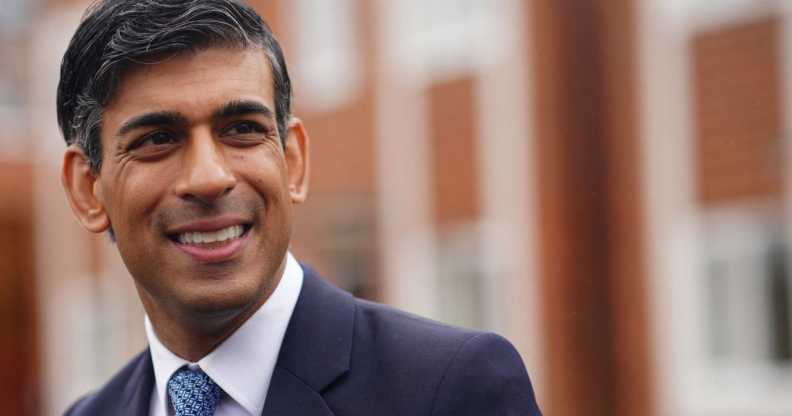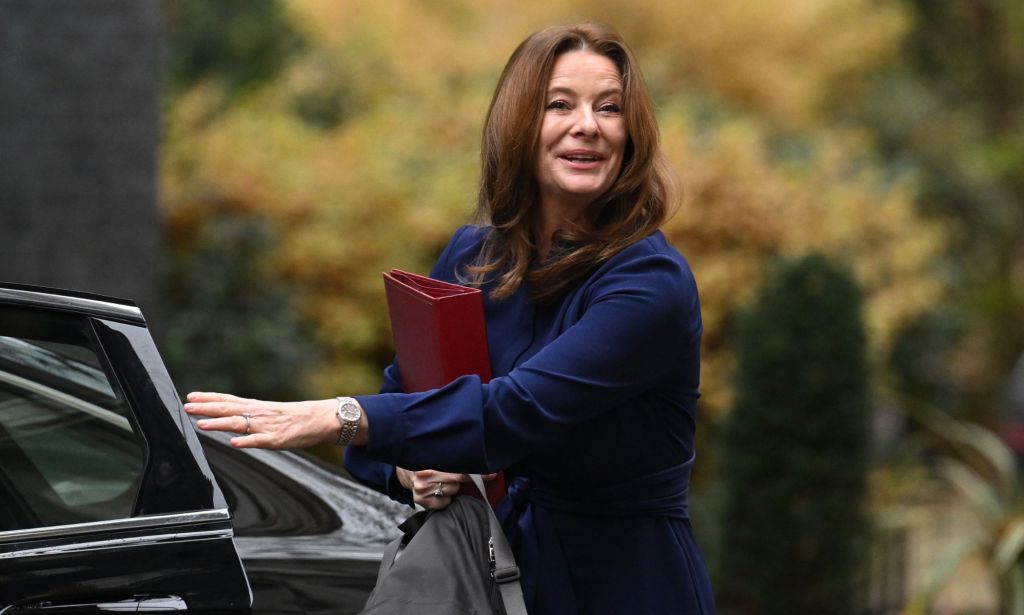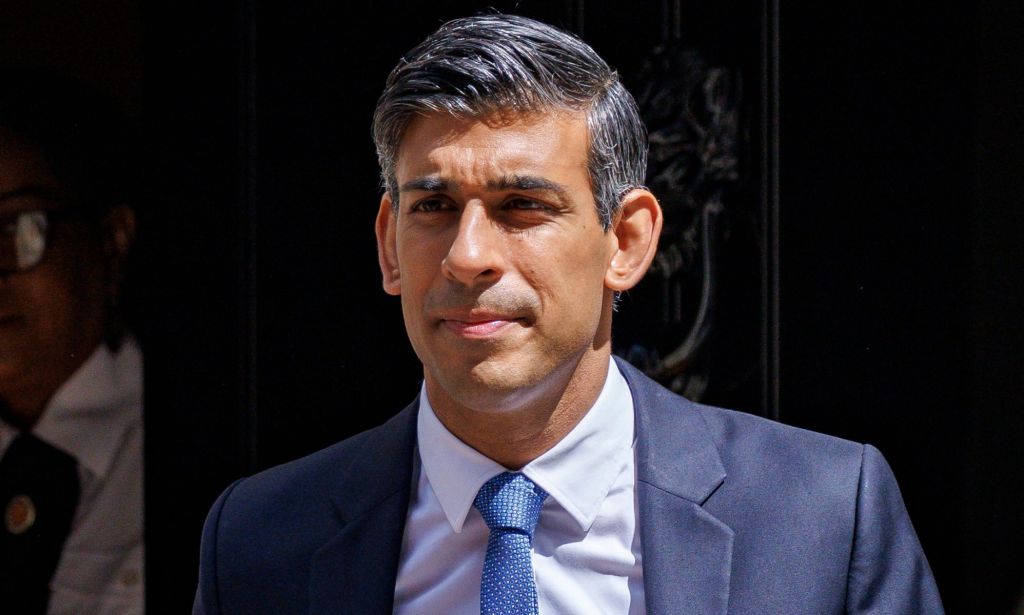Rishi Sunak warned that trans schools guidance would put teachers in impossible bind and endanger children

Rishi Sunak’s government has been warned that his government’s plans for school guidance could jeopardise the safety and wellbeing of trans youth. (Getty)
An educational psychologist has warned the government that instructing schools to out trans youths to their parents would make young people feel unsafe and put them at risk of abuse.
Dr Cora Sargeant, an educational psychologist at the University of Southampton and host of the podcast series Classroom Psychology, says the government must tread carefully when putting together its long-delayed guidance on trans issues for schools.
Education secretary Gillian Keegan has all but confirmed the government will force schools to out trans children to their parents, telling ITV’s Robert Peston that “parental consent” is vital when a child tries to socially transition at school.
Her statement came after The Times reported that the government wanted to introduce a blanket ban on social transition in schools, but that the attorney general had warned that such guidance could be illegal.
Sargeant tells PinkNews that the coming out process for any young person can be “challenging and traumatic”, but that it can also be “warm, welcoming and wonderful”.
It is, she says, a natural process by which a young person figures out who they are. For a trans child or adolescent, they might experiment with how they style their hair or adopt a new name or pronouns.
This is what is referred to as social transition, and it’s a vital part of growing up for a trans or gender-diverse young person.
As far as Sargeant is concerned, schools would interrupt that process if they were to out young people to their families by seeking parental consent.

In worst-case scenarios, outing a child to their family, or preventing them from expressing themselves fully, could lead to mental-health issues or abuse at home.
“The challenge with a piece of guidance that invites schools to tell parents on a child’s or young person’s behalf, maybe before they’re ready – especially if they’re not ready, if they don’t consent to that process – is that it interrupts what might be going on,” Sargeant warns.
“It interrupts what might be a natural process of understanding and might expose people to something they’re not ready to see yet and it might make children and young people feel very unsafe.”
She points out that trans and gender-diverse young people are already at a heightened risk of abuse. Asking schools to seek permission from parents to allow children to socially transition would put some in harm’s way and place teachers in an impossible situation, she adds.
“It puts schools in a position where they really have to make the call: by telling their parents, can [they] know that [the] child or young person [is] going to be safe?
“That’s a difficult call to make, and if the guidance says on standard we should be telling all children and young people’s parents as soon as they question, we really do run the risk of putting them in danger.”

For young people to flourish, they must have agency, Sargeant says. Children and young people “have a right to inform the proceedings that affect them”, she believes.
“If we take their agency from them, I don’t know that that is going to yield the potential positive future that we might hope for them… If we can create a world where everyone can find a place to belong, then, hopefully, children and young people will tell people when they’re ready.
“If we inhibit children and young people [from finding themselves], if we try to reinforce gender stereotypes and say: ‘This is the gender you were assigned at birth and therefore this is the kind of form or gender expression that’s available to you’, then you can’t experiment.
“We put them in a position where it will be harder to find themselves. We lived through this in the ‘80s – we lived through Section 28 where it was impossible to even describe genders outside of the binary. It was impossible to describe gender-diverse folk as reasonable and existing in the world.
“I know from my own experience – I’m a transgender woman and I know that staying secret to stay safe, hiding an authentic part of yourself, [doesn’t] necessarily make it easy for you to find a true sense of belonging in the world.
“I don’t know that Rishi Sunak will hear me but [if he does]: we’re out here, we’re genuine, we’re real and in the world. And my hope is that we’ll create a world where all children, young people and adults of all genders can find a place to genuinely belong.”

It is not yet known when the government will publish its guidance around transitioning at school, but it is expected that, when it does arrive, it will be non-statutory, meaning it won’t be legally binding.
However, some people are concerned it could create an unwelcoming culture in schools where it would become more difficult for young people to socially transition, or even experiment with how they present themselves.
Labour MP Kate Osborne told PinkNews that the government’s plans “could have unintended consequences even just for girls who want to wear trousers or for students who, for whatever reason, want to change their name”.
Fellow Labour MP Nadia Whittome described the leaked plans as “authoritarian and discriminatory”.
According to The Times, Sunak originally pledged to issue the guidance by last week, but that deadline passed after the attorney general, Victoria Prentis, warned it could breach the law.
How did this story make you feel?

